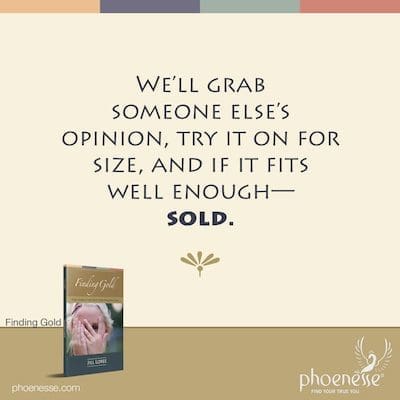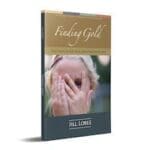We are all seeking to enter the kingdom of God—the kingdom of love. And then we stub our toes, over and over, on difficulties with other human beings. Doh. We’re full of goodwill and we know about basic spiritual truths and how important love is. But still, obstacles arise.
The main problem here is blindness—others’ and our own. In their blindness, others hurt us, and in our own blindness, we don’t see how much we hurt them back. Whenever we think that our suffering is caused by someone else—ding, ding, ding, we lose. They are then most definitely no more blind than we are.
We build these elaborate cases against others—and we see them so clearly—fortifying our position by thinking in reverse. We need to turn that beacon on ourselves and catch ourselves in this act. Because objectivity is a fundamental requirement for being unselfish and having the capacity to love.
The more we battle against all that we can’t change—which largely includes everything and everybody—the more unhappy we become. This happens regardless of how right we are or how wrong the other may be.
Which brings us face-to-face with our opinions. What exactly are they, these ironclad opinions of ours, many of which we’ve accepted as gospel when we don’t even know if they are truly ours—or why we believe in them.

Under the weight of our emotional baggage, many of us are carrying around opinions that aren’t actually ours. For sure, these might be valid opinions, but if they aren’t our own, arrived at through our own mature thought processes, it is more harmful than holding a wrong opinion that we came to in an honest way. Surprising, huh?
Sure enough, it turns out that an honest mistake trumps an opinion arrived at through weak reasoning and lack of courage. Let’s face facts: we’re fallible humans and we make mistakes. Full stop. But that doesn’t address the reason we spout opinions not of our own making.
One possible reason: we’re a lazy bunch. If it’s not really our problem, we think it’s not important enough to make the effort of thinking independently. You know, just for the sake of truth. So we’ll grab someone else’s opinion, try it on for size, and if it fits well enough—sold. We somehow think this is preferable to holding no opinion.
Another reason: we feel inferior. In that case, we are so certain that others know better than we do, we’ll rely on them for forming our opinions for us. Weird thing is, the more opinions we hold that aren’t our own, the more we secretly hate ourselves. The more we despise ourselves, the greater our apparent need to let someone else think for us. Around and around we go. We need to have the guts to step off this merry-go-round.
When we do formulate our own view of things, we may find our ideas differ from others. And when we have the courage to live up to them, paying the price of possibly swimming against popular opinion, we automatically find a whole new pool of self-respect. And that sets us free. On the other hand, if we come to the same opinion we held before, but now we really own it, the courage it took to break free from the yoke of weakness we were wearing will have the same positive effect.
Perhaps we were being a conformist, just trying to fit in. This can stem from an immature feeling of being different, of not belonging, of being unique—and not in a good way. It’s also the reason behind children wanting to be like other children. They can feel deep shame about their imagined differences. As we mature, this tendency changes and our opinions need to keep up.
Here’s another one. If we still have a craving to belong but we secretly harbor feelings of rebellion against authority, we’ll make up for the rebellion by conforming to our environment in some other way. We will borrow public opinion.
Ready for yet another? Maybe we want to cover up a wish that we are denying ourselves by adopting the opposite opinion. This can happen when our desire doesn’t conform to public opinion and we are convinced of its wickedness. Such opinions are often extremely rigid—sometimes even violent.
We might even hold an opinion simply because it’s the opposite of one held by a hated and rejected authority. In this type of defiance, rebellion and hate, we are just as much in bondage as if we were conforming. We’re still totally dependent on the other.
In all these cases, we are not being true to ourselves. We’re selling out for an imagined gain. And that leads to self-hate. Which we bury in the dirt of our unconscious.
So it’s not hard to see then how it could be harmful to hold an opinion we didn’t come to believe on our own. The point here has nothing to do with whether the opinion is a valid one. We can all justify and rationalize until the cows come home. The point is, how did we arrive at it? What motivates us? That’s the real nut. It may take a very large dose of self-honesty to arrive at an honest opinion.
We need to beware of just how creative we can be with our reasoning capacity. Our Lower Selves are not dummies. We can find justification for just about any viewpoint. If we’re really clever, can we not challenge ourselves to see the point in the opposite view? Whether the topic is politics, religion, love or sex, we may uncover the truth that we’ve got a personal stake in our opinion—we’re not able to be completely objective. All this is good grist for the mill of self-honesty. And that is nourishing food for the soul.
Return to Finding Gold Contents
Read Original Pathwork® Lecture: #51 Importance of Forming Independent Opinions



